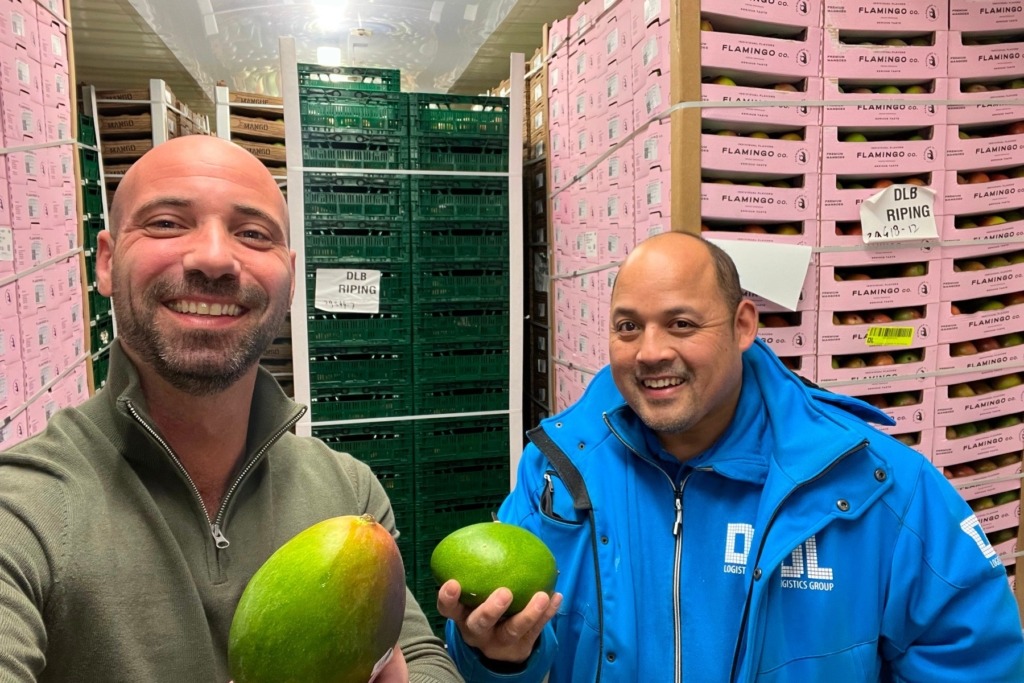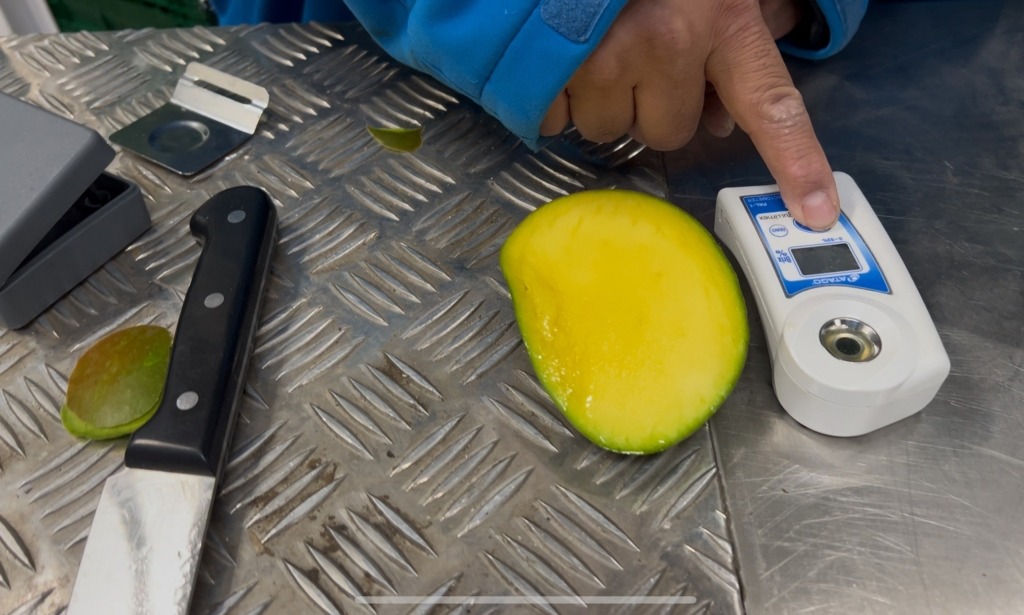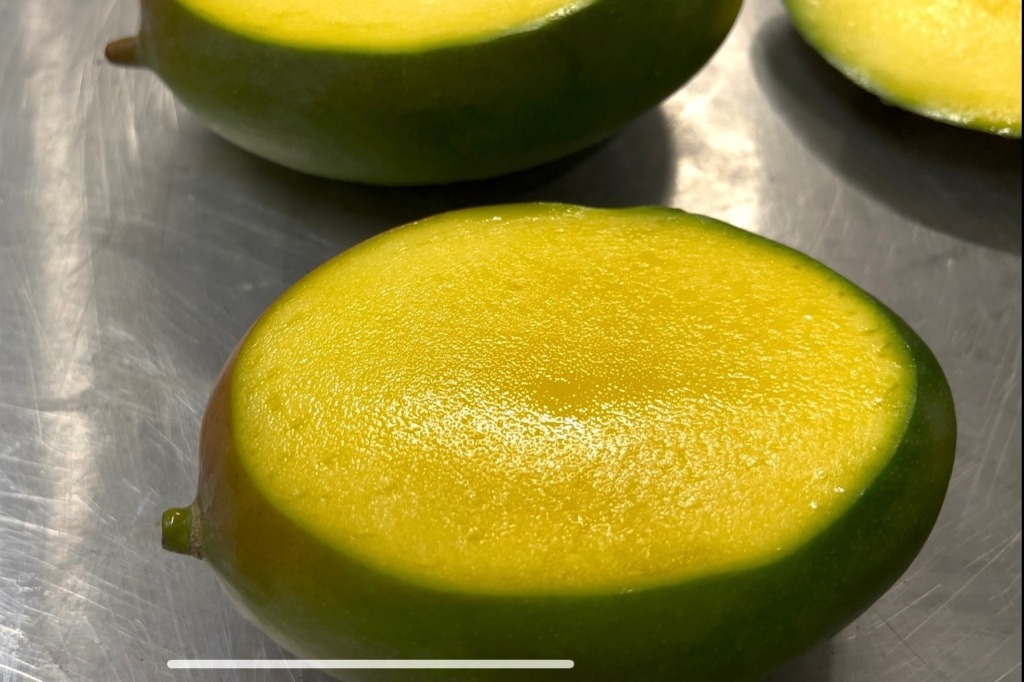It takes feeling and technology to ripen mangos precisely
Shipped mangoes must be ripened precisely to reach their optimal flavor. Micha Lejewaan, ripening master at DL Fruit Logistics in the Netherlands, shares how this process is perfected. “It’s not hard to do once you know how, but it takes fine-tuning,” he says of the art of ripening.
Start of a new adventure
This year, DL Fruit Logistics, specializing in fresh produce logistics and packaging services, decided to respond to client demand and self-ripen mangoes. To do so, they rent two advanced ripening cells from the Dawsongroup, each with space for 27 pallets. That offers more flexibility and lower transportation costs compared to the outsourcing they did before.
According to Micha, the project is a success. “We’ve not yet had any customer complaints.” He points out that there is more to ripening mangoes than simply setting up a cell. It is a process where craftsmanship and technology go hand in hand.


The process: from green to ripe
Most container mangoes arrive unripe. “Sometimes they’re still rock hard, sometimes they’ve begun ripening,” says Micha. Ripening begins by mimicking natural conditions and raising the temperature in the cell to “wake up the fruit.” Throughout the process, he digitally checks the temperature, humidity, and the mangoes’ internal ripeness.
Essential parameters such as hardness and Brix value – an indicator of sweetness – are checked regularly. Micha can adjust the process by, for example, raising or lowering the temperature. “You must be able to read the fruit. That is where experience comes in. “Some defects only become visible during ripening. My experience lets me assess risks and minimize failures,” says Lejewaan.
Technology and flexibility
The Dawsongroup’s modern ripening cells are crucial for consistent results. “The humidity is continually regulated to prevent dehydration or mold growth.” Micha praises the cells’ flexibility, which he can even control remotely. Human monitoring, however, remains vital. Micha visits the cells regularly, even on weekends, to manually check everything. “You can’t rely on automation alone,” he says.
Ripening also requires constant coordination with customers. “Some want ready-to-eat mangos; others’ mangoes can ripen for a few more days. Flexibility is key.” While you cannot suddenly speed the process up, Micha can slow it down by lowering the temperature.

The importance of collaboration
Working with the Dawsongroup undoubtedly gives DL Fruit Logistics a competitive edge. The cells’ versatility lets them easily switch to other fruits. “That not only provides flexibility but also the ability to respond to market movements,” says the ripening expert.
You need a combination of advanced technology and human craftsmanship to ripen mangos. Micha sums it up nicely, “It’s a matter of continual fine-tuning, but that’s exactly what makes it so interesting.”
For a Smarter Asset Strategy that provides sustainable business solutions, request a free consultation with a Dawsongroup expert by completing the contact form below.
UK Head office
Delaware Drive
Tongwell
Milton Keynes
MK15 8JH

Dawsongroup Limited | Company reg. no. 01902154 (registered in England and Wales)